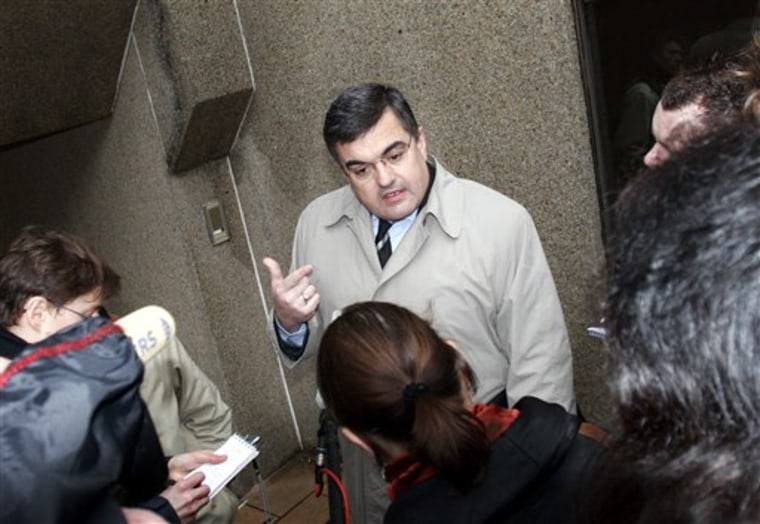Microsoft Corp. said Friday it had made a breakthrough in its antitrust case with the European Union after an independent monitor outlined what it could do to stave off daily fines of $2.4 million.
EU officials and Microsoft rivals, however, expressed doubts.
“Two years on, Microsoft’s technical documentation remains incomplete, inaccurate and unusable,” a coalition of software companies, the European Committee for Interoperable Systems, said in a statement.
(MSNBC is a Microsoft-NBC joint venture.)
Microsoft lawyer Brad Smith told reporters that he was “very encouraged” by Professor Neil Barrett’s plan to move forward and said it was the most positive step since December, when the company was threatened with the fines.
“It finally gives us the kind of specificity and clarity that we need in order to work in a constructive way and to move all these issues forward,” Smith said as he left the second and final day of hearings.
That hearing, packed with more than a hundred lawyers and officials, was the Redmond, Wash., company’s final chance to defend itself before the EU decides about fines.
Microsoft insists that it has already gone beyond what it needs to do to comply with the EU’s 2004 antitrust order, which also forced Microsoft to pay the EU’s largest ever antitrust fine, $613 million.
In an interview Friday, Smith said the company’s optimism was the result of some “good constructive discussion” between Microsoft’s engineers and Barrett. But he declined to provide specifics of those discussions.
“As is often the case, it’s more productive to have engineers talking to engineers than to have lawyers debating with lawyers,” Smith said.
EU spokesman Jonathan Todd said the company still hasn’t adequately shared technical information with rivals so they can make software compatible with Microsoft’s flagship Windows operating system.
He said regulators — and not the independent monitor — would weigh all the information they had heard before deciding whether to levy fines.
“The monitor is an adviser to the European Commission and does not make proposals,” Todd said.
Barrett, a computer scientist appointed to oversee Microsoft’s efforts to follow the antitrust order, has been in contact with Microsoft engineers in recent months to discuss a technical manual for other software developers, one he earlier described as “unusable.”
EU Competition Commissioner Neelie Kroes warned earlier this month that the company was on course for large fines if it kept up its recent conduct.
The U.S. government wrote to Kroes, two other senior officials and EU governments on Monday about the Microsoft case, EU and U.S. officials said Friday.
The U.S. mission to the EU said it merely wanted to point out that Microsoft’s allegations that antitrust regulators lacked transparency and fairness “if accurate, would be of substantial concern to the U.S.” The mission stressed that it was not taking a position on the case and described the communications as normal.
The EU would not comment on the letter’s contents. Todd described it as an informal paper that did not carry any official status.
Microsoft has complained that the EU wrongly withheld documents it needed to challenge the 2004 ruling at the EU’s second-highest court in late April. It alleged that EU officials and Microsoft rivals may have influenced the independent monitor’s report criticizing the company’s efforts to follow the order.
The EU has rejected Microsoft’s claims that regulators had not been clear and consistent about what they were looking for, saying it has clearly spelled out Microsoft’s obligations in the original 302-page antitrust order.
Microsoft told the hearing Thursday the technical manual met industry standards. Six technology companies testified that they were using the manual to create software compatible with Microsoft’s products. It named four of them as EMC Corp., StarBak Communications Inc., Tandberg Television Ltd. and Network Appliances.
EU officials have maintained that many companies had said the information Microsoft provided was not suitable.
